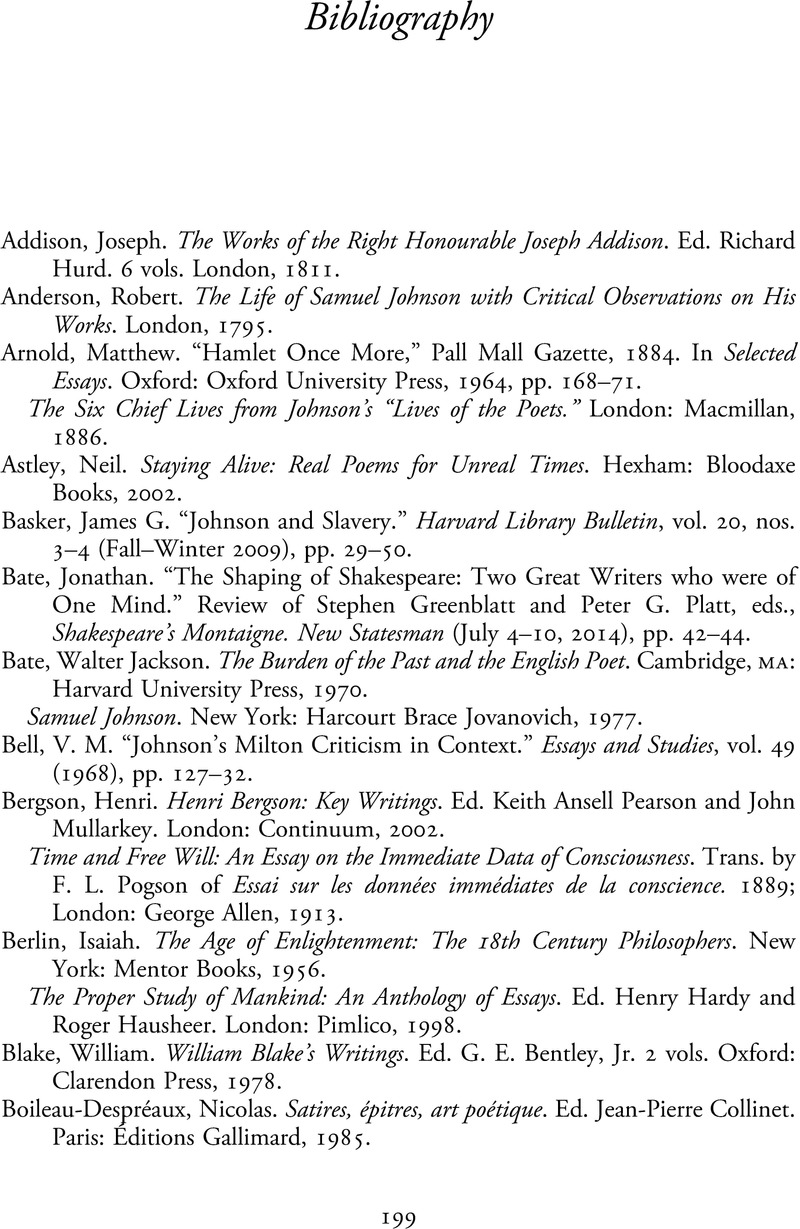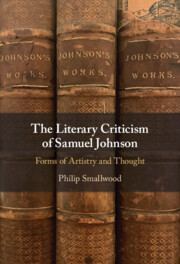Book contents
- The Literary Criticism of Samuel Johnson
- The Literary Criticism of Samuel Johnson
- Copyright page
- Dedication
- Epigraph
- Contents
- Preface
- Acknowledgments
- Abbreviations
- Introduction
- Part I Johnson’s Criticism and the Forms of Feeling
- Part II Critical Relations and the Art of Literary History
- Part III Johnson, Dramatic Poetry and Thinking
- Part IV Time, Truth and History
- Part V Editing Lives, and Life
- Appendix Irony in Revolt: F. R. Leavis Reads Johnson
- Bibliography
- Index
- References
Bibliography
Published online by Cambridge University Press: 07 September 2023
- The Literary Criticism of Samuel Johnson
- The Literary Criticism of Samuel Johnson
- Copyright page
- Dedication
- Epigraph
- Contents
- Preface
- Acknowledgments
- Abbreviations
- Introduction
- Part I Johnson’s Criticism and the Forms of Feeling
- Part II Critical Relations and the Art of Literary History
- Part III Johnson, Dramatic Poetry and Thinking
- Part IV Time, Truth and History
- Part V Editing Lives, and Life
- Appendix Irony in Revolt: F. R. Leavis Reads Johnson
- Bibliography
- Index
- References
Summary

- Type
- Chapter
- Information
- The Literary Criticism of Samuel JohnsonForms of Artistry and Thought, pp. 199 - 212Publisher: Cambridge University PressPrint publication year: 2023

